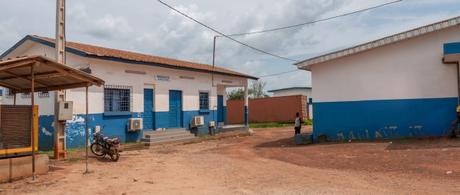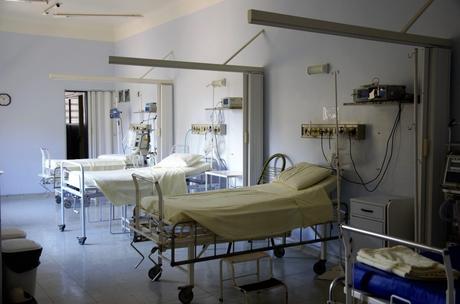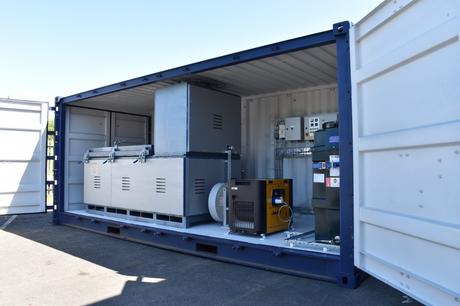
Developing countries or countries without well established infrastructures tend to have smaller satellite medical practices or clinics that are used by the local communities. These clinics tend to not carry a huge amount of supplies or have access to the latest machinery and equipment to do complex procedures but remain vital in the fight against key health issues such as fighting infection and diseases such as malaria in Africa and South America.
Although these types of clinics will not deal with the same number of patients each day compared to a larger hospital they still produce a considerable amount of medical waste, and that waste is even more of a risk in remote locations where there isn't a collection service or local landfill. Quite often this is just burnt in fire pits or bonfires causing huge health risks to the patients and staff of the clinics. It is crucial to have the waste removed or destroyed as quickly as possible to keep on top of their biosecurity and reduce the chances of contamination.
A key element in controlling and limiting a possible outbreak is to incinerate medical waste on-site every day. By destroying this waste every day it will considerably improve biosecurity and limit possible contamination and outbreaks of disease to a minimum.

Medical waste can contain a wide range of hazardous materials and viruses so it must be not only be disposed of correctly but it must also be destroyed quickly to reduce the risk of contamination. Medical waste can contain a wide variety of waste types from expired pharmaceuticals, IV lines, cytotoxic waste, used dressing, operational equipment and pathological waste to name just a few. All this waste is counted as extremely hazardous and can present significant risks to those who handle them incorrectly.
Hospitals use incinerators to destroy medical waste because it is a quick and extremely effective way of doing so. Incinerators will destroy all potential biohazardous material within an extremely short space of time (less than an hour) and leave just ash as the residue.
What's different with smaller clinics in developing countries?
Although smaller clinics still offer great medical services they sometimes lack the infrastructure of a well-established hospital and therefore don't have the same facilities such as on-site incinerators. Having an incinerator within a clinic or practice can have huge benefits in regards to biosecurity and the overall management of waste, they are easy to use and provide a simple way of fighting the battle against disease and infection.

Inciner8 have been world leaders in the medical incineration industry for over 15 years and we offer a wide range of medical solutions for the management of waste. The incinerators we offer can be provided to suit any situation, they can either be fixed, containerised or trailered depending on your needs and provide the perfect solution to your waste management problems.
Such a range of options gives you the flexibility to potentially use a trailered unit at multiple sites per week or a fixed incinerator at a busier centralised clinic where there is substantial medical waste every day. It is this level of detail that puts us above the competition, we know that every problem is different, so we design our solutions around your problem. Our expert sales team will discuss the best options for you by talking about the issues you face and where you want to be in regards to the management of your waste.
If you found this information useful and would like to know more then please visit our contact us or call our team on +44 (0) 1704 884020 where they will be more than happy to give you advice on our latest solutions and discuss the perfect solution for your needs
